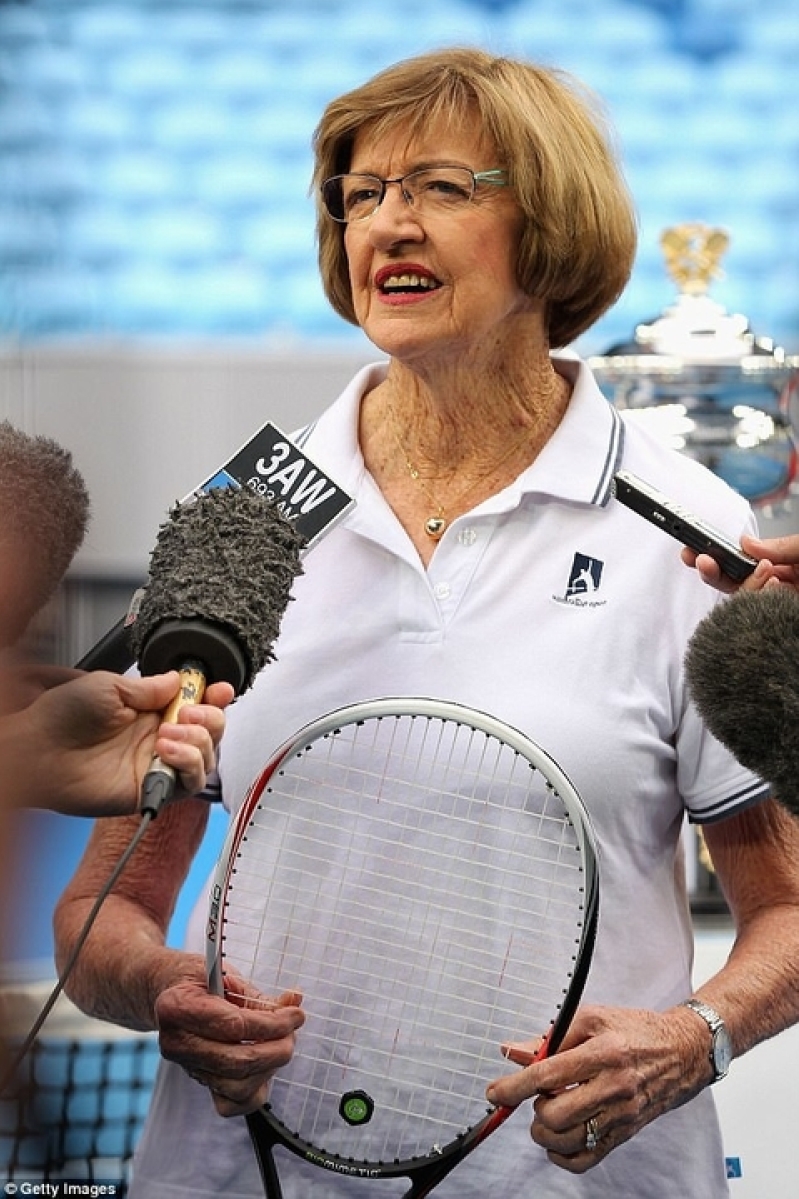
Retired tennis great Margaret Court has opened up about the persecution she's experienced from the LGBT community since declaring her opposition to gay marriage and warned that, when a nation moves away from Biblical principles, it begins to decline.
Court, who is also the pastor of Perth's Victory Life Church, told The Project on Friday that she has been a victim of bullying after The West Australian newspaper published her letter detailing that she won't fly Qantas airline because of its pro-gay marriage stance.
"If people read the first two chapters of the Bible, they will find out why I believe what I believe," the 74-year-old athlete said. "God ordained it for children to have a mum and a dad and I think it's very important for people to understand that."
"Anything that Christians or non-Christians say about marriage at the moment, they are being bullied ... I have nothing against homosexual people, they can lead their life, but don't touch marriage, and it's permanent and precious."
The Australian native added, "Our church, we have many cultures, homosexual people from many nations of the world and I think we need to know that the foundations of this nation is built on biblical principles and constitutions. When we move away from God's values and morals and things such a decline starts to come in a nation."
The tennis great added that tolerance doesn't seem to be a two-way street: "It's like nobody can say anything," she said. "We are getting persecuted, we are getting bullied because we do have free speech also. It's very, very much one-way."
In her controversial letter, Court said she believes marriage is a union between a man and a woman, "as stated in the Bible" and said she opposes Qantas CEO Alan Joyce's public support for changes to Australia's marriage laws.
"I am disappointed that Qantas has become an active promoter for same sex marriage," she wrote. "Your statement leaves me no option but to use other airlines where possible for my extensive travelling."
She also said in the letter she had proudly promoted Qantas during her days "of never losing a tennis match while playing for my country".
"I love all people and will be pleased to talk to your board at any time," she wrote. "But it won't be in the Qantas lounge."
After Court made her opposition to gay marriage known, supporters of the LGBT community issued calls to change the name of Margaret Court Arena.
Tweeted fellow legend Martina Navratilova: "Maybe it's time to change the name of the Margaret Court Arena then... and I guess Margaret will be taking the boat on her next trip?:)."
She added in another tweet: "thank you Qantas for your support. And Margaret - you have gone too far. Shame on you... #wrongsideofhistory."
In an article for the Sydney Morning Herald, Peter FitzSimons asked if Melbourne Park wanted to have an arena named after someone who "stands so firmly against such inclusiveness", saying Court "embarrasses herself".
Court said such calls are just one example of the bullying she's endured: "I think it's very sad that they're bringing my tennis into it. This is why I say it's becoming a bullying from the homosexual gay side of people, they are now bullying us," she said.
However, Prime Minister Malcolm Turnbull said he did not support calls to change the name of the venue: "Whatever people may think about Margaret Court's views about gay marriage ... she is one of the all-time greats and the Margaret Court Arena celebrates Margaret Court the tennis player," he told 3AW on Friday.
"She's one of the greatest greats of tennis and that's why the arena is named after her."
Court, who is the most decorated player in grand slam tennis history, winning a record 24 major titles from 1960 to 1973, has previously condemned homosexuality, calling it an "abomination to the Lord" in a speech to federal parliament in 1994.






